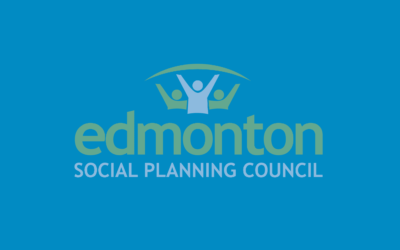Blog: Roe v. Wade: Implications and Impact for Abortion Access in a Canadian and Albertan Context

Many of us have been reeling with the seriousness from the United States Supreme Court’s overruling of Roe vs Wade, a ruling that has been in place since 1973, that is just shy of 50 years. Let that sink in. The ruling that has made it possible for countless people to access abortions for 49 years was overturned with a vote of 6-3. This has created conversation, controversy, and distress for many.
In this three-part blog series, we are going to dive deeper into why this ruling must be discussed, its implications for Albertans, and how decisions made by privileged people who hold power impact the living realities of the marginalized.
Why does this ruling matter?
This ruling is not a federal ban on abortions; however, it does turn over the decision to individual states to determine legality and access. (1) Did you know that while abortion is legal in Canada, the access is determined provincially
In Canada, there is no specific reference to abortion, in the constitution, however, it does state, “The provinces have the authority to make laws about education, property, civil rights, the administration of justice, hospitals, municipalities, and other local or private matters within the provinces.” (2). What about the Canadian Bill of Rights? – there is no mention there either. How does this relate to the Roe v. Wade overturn? “In Dobbs v. Jackson Women’s Health Organization, the Court ruled 6-3 that ‘the Constitution makes no reference to abortion, and no such right is implicitly protected by any constitutional provision.’” (3)
Abortion should be, and technically is, protected under the current Canadian Charter of Rights and Freedoms and through precedents set in court according to the Abortion Rights Coalition of Canada (2022). They state that “laws and the justice system tend to be used not to help marginalized groups but to control them, including people of colour, Indigenous peoples, the 2SLGBTQI+ community, sex workers, and of course ciswomen. A well-intentioned law could potentially do more harm than good, or not much good at all.” (4)
What is the history of Abortion Rights in Canada?
Canada had its own monumental court decision on abortion in 1988 R. v. Morgentaler. (5) This decision was a 5-2 vote and part of the decision written by Chief Justice Brian Dickson stated that “forcing a woman, by threat of criminal sanction, to carry a fetus to term unless she meets certain criteria unrelated to her own priorities and aspirations, is a profound interference with a woman’s body and thus a violation of security of the person.” (5). This ruling was made as a reflection of the violation of the Charter of Rights and Freedoms “because it infringed upon a woman’s right to ‘life, liberty and security of person’.”(5) In 1990, Prime Minister Brian Mulroney put forward Bill C-43 which would have seen medical professionals incarcerated for performing non-life threatening abortions. “The bill was passed by the House of Commons but died in the Senate after a tie vote.” (5)
The Canada Health Act states, “tThe Act sets out the primary objective of Canadian health care policy, which is to protect, promote and restore the physical and mental well-being of residents of Canada and to facilitate reasonable access to health services without financial or other barriers.” (6) While the Act may set out the objectives, the actual implementation is done by the provinces. “Today, abortion falls under provincial health-care systems as a medical procedure, meaning that access to the procedure varies considerably from place to place.” (7)
What does access in Alberta look like?
Is abortion legal in Canada? Yes. Does that mean abortion is easily accessed? No.
There are 3 clinics outside of hospitals in Alberta where medical or surgical abortions can be done, but these are only located in Edmonton and Calgary. Mifegymiso® is an oral drug used to terminate pregnancy (8) and has only been available in Canada since 2017. (5) It can be dispensed directly to patients by pharmacists, which means a person can take their prescription from their doctor to the pharmacist and then take the medication at home. (8) As with physicians and medical staff, pharmacists can also claim “conscientious objection” where dispensing the medication may go against their moral beliefs. (8) While medical practitioners and pharmacists are required to pass the person on to someone who will administer the medication or procedure, this is not always the case and is particularly difficult in rural communities where often there are limited options. Even rural communities that have obstetrical and/or surgical options are often still not abortion accessible, in part due to conscientious objection, misinformation regarding abortion, and stigma. (9)
The federal government is well aware of the potential barriers to accessing sexual and reproductive health care. “While barriers vary from coast to coast to coast, in some instances they include a lack of availability, a lack of financial and logistical resources required to travel to access abortion care, and lack of culturally safe, stigma-free sexual and reproductive health services. Previous experiences of discrimination within the health care system also create access barriers for minority and marginalized groups, such as Indigenous and racialized people, members of 2SLGBTQI+ communities, and youth.” (10)
Yes, there are potential consequences for provinces that do not provide adequate access to sexual and reproductive health care such as a restriction of funds. This happened in New Brunswick, where $140,000 was withheld from “New Brunswick for failing to provide funding for abortions at a Fredericton clinic.” (7) Reducing funding as a consequence for something they did not want to do in the first place does not seem like much of a consequence and has broader ramifications for people needing access to care.
What Can We Do?
The question is not if abortion is legal in Canada, it is. Instead, the conversation needs to be about access, accountability and reducing stigma.
Access
Information pertaining to abortion access in Alberta is often misleading and at times contradictory. Alberta Health Services’ (AHS) website titled ‘Abortion Health Services’ is one example. The resource options at the site are minimal; they focus on external clinics and imply obtaining Mifepristone/Misoprostol for a medical abortion is only available through two clinics in Alberta, which is incorrect. (11) There is a newer AHS website titled “Abortion” that better explains abortion options in Alberta. (12) The issue is that both pages appear when searching Google. There needs to be clarity around availability and choice and information needs to be accurate and accessible.
For people living in rural areas, there needs to be more accessible options. Having to travel to receive an abortion is costly and is an unnecessary barrier. There needs to be special consideration for access to marginalized groups and consideration of lived experiences. We need to have meaningful conversations around ways in which access is expanded and barriers can be reduced.
Accountability
The issue of physicians or facilities not providing certain reproductive health services is a problem. While practitioners and pharmacists have the right to “conscientious objection,” they are required by their professional bodies to ensure that the human being coming into their office has other options for care which means referring them to someone who will not object.
The Canada Health Act exists for a reason. The federal government needs to ensure provinces comply. Provinces must be held accountable as they are responsible for providing access; while Health Canada states that financial investments into sexual and reproductive health “reflect our belief that women have the right to make decisions about their own bodies and that no matter who you are or where you live, we will always protect reproductive rights for all individuals in Canada,”(Health Canada, 2022) it means little if people cannot access the resources they need to support those same decisions.
Reduce Stigma and Shame
People who are considering, experiencing, or recovering from an abortion should be supported in their decision physically and mentally. There are many myths surrounding abortion and this creates barriers of misinformation.
Abortion should be de-stigmatized and seen as an important component of sexual and reproductive health rather than something to be ashamed of.
It is imperative that these conversations continue to happen because there will always be people trying to suppress and/or eliminate the rights. People in positions of power and privilege have a responsibility to ensure that rights are protected for the marginalized.
Resources About Abortion:
Alberta Abortion Resource Network
https://www.albertaabortionaccess.com/
Abortion Clinics in Alberta
https://www.albertaabortionaccess.com/clinics-in-alberta
Abortion Clinics and Resources in Canada
https://www.arcc-cdac.ca/wp-content/uploads/2020/08/list-abortion-clinics-canada.pdf
About Abortion
https://myhealth.alberta.ca/Health/pages/conditions.aspx?hwid=tw1040
Action Canada for Sexual Health and Rights: Common Myths About Abortion
https://www.actioncanadashr.org/campaigns/common-myths-about-abortion
References:
- McClain, E. & Huberfeld. N. (2022, June 24). Roe overturned: What you need to know about the Supreme Court abortion decision. The Conversation. https://theconversation.com/roe-overturned-what-you-need-to-know-about-the-supreme-court-abortion-decision-184692?utm_medium=email&utm_campaign=Latest%20from%20The%20Conversation%20for%20June%2025-26%202022&utm_content=Latest%20from%20The%20Conversation%20for%20June%2025-26%202022+CID_cf957f25141a8f31a0b9164d8b0a79ff&utm_source=campaign_monitor_ca&utm_term=Roe%20overturned%20What%20you%20need%20to%20know%20about%20the%20Supreme%20Court%20abortion%20decision Government of Canada. (2021). The Canadian Constitution. https://www.justice.gc.ca/eng/csj-sjc/just/05.html
- Flowers, P. (June 24, 2022) US Supreme Court overturns Roe v. Wade – but for abortion opponents, this is just the beginning. The Conversation. https://theconversation.com/us-supreme-court-overturns-roe-v-wade-but-for-abortion-opponents-this-is-just-the-beginning-185768?utm_medium=email&utm_campaign=Latest%20from%20The%20Conversation%20for%20June%2025-26%202022&utm_content=Latest%20from%20The%20Conversation%20for%20June%2025-26%202022+CID_cf957f25141a8f31a0b9164d8b0a79ff&utm_source=campaign_monitor_ca&utm_term=US%20Supreme%20Court%20overturns%20Roe%20v%20Wade%20%20but%20for%20abortion%20opponents%20this%20is%20just%20the%20beginning
- Abortion Rights Coalition of Canada (ARCC). (June, 2022). Position paper #66 Why we do NOT need to enshrine abortion rights into law. https://www.arcc-cdac.ca/wp-content/uploads/2022/06/66-dont-enshrine-abortion-rights-into-law.pdf
- National Abortion Federation of Canada. (2022). History of Abortion in Canada. https://nafcanada.org/history-abortion-canada/
- Government of Canada, (2020). Canada Health Act. https://www.canada.ca/en/health-canada/services/health-care-system/canada-health-care-system-medicare/canada-health-act.html
- Smith, MD. (2022, June 28). Canada has no abortion right law. Does it need one? CBC News. https://www.cbc.ca/news/canada-abortion-law-1.6503899
- Alberta College of Pharmacy. (2019). Guidelines for dispensing Mifegymiso® https://abpharmacy.ca/sites/default/files/Guidelines_Mifegymiso.pdf
- Yousif, N. (2019, January 19). Rural Albertans still have ‘no choices’ when it comes to abortions, activists say. Toronto Star. https://www.thestar.com/edmonton/2019/01/19/rural-albertans-still-have-no-choices-when-it-comes-to-abortions-activists-say.html
- Health Canada (2022, May 11). Government of Canada strengthens access to abortion services. Government of Canada. https://www.canada.ca/en/health-canada/news/2022/05/government-of-canada-strengthens-access-to-abortion-services.html
- Alberta Health Services. (n.d.). Abortion health services. https://www.albertahealthservices.ca/findhealth/service.aspx?Id=1003402
- MyHealthAlberta. (2022). Abortion. Alberta Health Services. https://myhealth.alberta.ca/Health/pages/conditions.aspx?hwid=tw1040


